Text
Websites to learn languages by reading
Hyplern
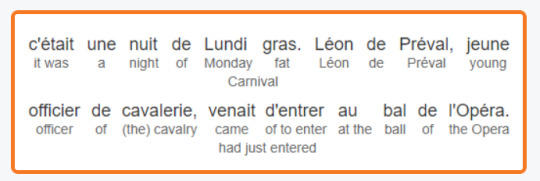
Language Crush

Readlang
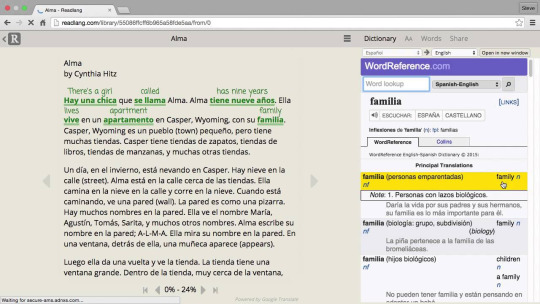
Vocab Tracker

9K notes
·
View notes
Text
Japanese Dialects Masterpost
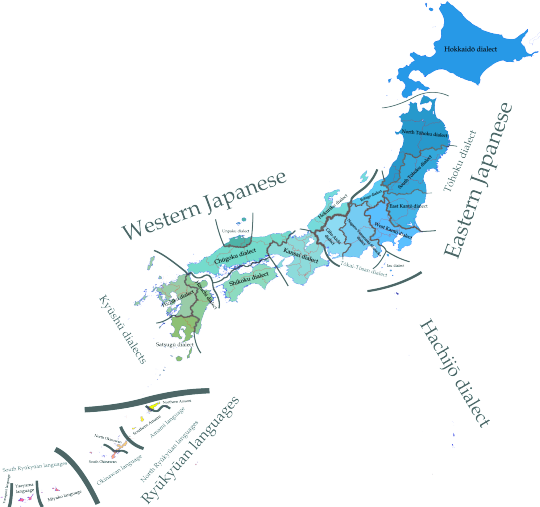
Dialects can be fun and offer cultural insight. They may be useful to learn, though usually only if you have geographical links to a specific area of Japan- perhaps you have family there, personal heritage there, you live there, or are going to do a language exchange in a specific area. Linguists may also be interested just because they are really interesting.
In almost all instances for non-Japanese people learning to understand a dialect when it’s spoken/written (rather than produce it in your own speech) would suffice for communication. As far as I can see the best reason to learn to actually speak a dialect is because you want to communicate with elderly people from that region specifically; most young people have had far more media exposure so they can easily use ‘standard Japanese’/ Tokyo dialect.
If a non-native Japanese speaker learns a dialect and can’t speak standard Japanese, they may find they are seriously limited in conversations and people will inevitably find it weird. They might just find they are incomprehensible:
’I spent three years living in Nemuro, the easternmost town in Hokkaido. […] Hokkaido-ben is often misunderstood outside Hokkaido, Nemuro-ben can’t be understood even in the next town over. So it’s basically useless unless you’re planning a trip to Nemuro (which I would recommend.) However, it does show how many variations there are in dialect, even within one island.’ [Tofugu, my emphasis]
Someone with a low communicative ability in English who could only speak using Cockney rhyming slang, but didn’t know standard English unfortunately would sound ridiculous to natives of that area. It would seem crazy to know ‘You’re ‘aving a bubble mate!’, but not ’You must be joking!’. They’d sound odd and in many instances their language would sound antiquated. Be aware that you may well get a similar reaction if you pepper your speech with regional dialect as a non-Japanese person without being conversationally fluent in standard Japanese. I’m not saying don’t learn dialects, please do if they interest you, learning to understand them when you hear them, rather than necessarily use them in your own speech, is a great idea. If you want to speak in them, please try to do it all in good time and in a respectful way that is not accessorizing the language and culture.
For beginners:
Many of the resources here will be only in Japanese, as this post is aimed at higher intermediate and advanced learners. The section below is in mostly English and will give you a general overview if you’re interested:
lingualift article (scroll down past their email sign up stuff to read)
FluentU will teach you a few basic phrases in a variety of dialects
Wikibooks has links to a few examples of phrases in different dialects
The wikipedia article will give you an informative introduction
Tofugu has a few articles on dialects: Hokkaido | Tohoku | Kansai
Japan Times article on dialects
For intermediate and Advanced learners:
I’ve organised this by prefecture, but it’s worth noting that some prefectures contain several dialects and I’m by no means an expert, I hope the Tumblr Japanese learning community can contribute to and help improve this post.
General:
Dictionary for dialects in EVERY prefecture
Short animations about various dialects
Women from every prefecture saying I love you in their regional dialect
Japanese dialect Wiki
There tend to be Line stickers on sale for dialects, as people think they’re cute and want to show local pride, try searching the Line sticker store for the dialect you want and you can use them in conversations, which will give you a little practise.
Big Weblio guide to all prefectures’ dialects
方言で話そう on Twitter will show you phrases in a variety of regional dialects from around the country
Project Guttenburg article which gets more into the linguistics of Kansai ben
I made a post on Kansai ben a while back and @similarjapanesewords made a post about it before too
video comparing local variations of the same phrase spoken by native speakers 1 2
This Youtube channel has a lot of different dialect tutorials (all Japanese)
There’s another Youtube channel here too (all Japanese)
hougen-japan
ALC dialect quizzes
The Japanese Wikipedia page has a lot more detailed information than the English page, naturally.
Kansaibenkyou
Maps of where some dialects are spoken
Wikipedia has a lot of basic introductory information on dialects, there are almost certainly dialects I’ve missed from this list, if you search for the prefecture or geographical location and the word 弁 or 方言 then you’re likely to find a dialect, even if it isn’t simply called [place name]弁.
Hokkaidō | Hokkaidō ben dictionary | Hougen.u-biq | Tofugu introducation to Hokkaido ben
Aomori | Goo Aomori ben dictionary | Japanesepod101 1 2 3 4 5 | animation about Aomori ben | Kindle book written in Aomori ben
Iwate | Phrase guide | dialect dictionary
Miyagi | Hougen.u-biq | Vocabulary | Introduction to Miyagi ben | Sendai ben
Akita | Akita ben course | How to use け in Akita ben | How to use こ in Akita ben
Yamagata | A few introductory phrases | Yamagata ben phrases | Yamagata ben dajare | Yamagata ben grammar
Fukushima | Fukushima ben Dictionary | Usage guide
Ibaraki | Ibaraki ben dictionary | Learn Ibaraki ben phrases
Tochigi | Tochigi ben guide to pronunciation and expressions | Tochigi ben dictionary |
Gunma | Five page vocabulary guide | 7 lesson course in speaking Gunma ben
Saitama | North Saitama dialect vocabulary | Phrases | More vocabulary | Saitama ben dictionary on Goo
Chiba | East Chiba dialect | Learn Bōsō dialect | Another Bōsō website | Bōsō dialect quiz | Sotobō dialect guide
Tokyo | dictionary | Tokyo dialect on Jlect | Tokyo ben on Chaku wiki | About Tokyo ben | vocabulary
Kanagawa | 10 phrases | Yokohama and Kanagawa dialect dictionary | Kanagawa ben on chaku wiki
Niigata | Niigata ben dictionary | ��Japanesepod101 1 2 3
Toyama | Vocabulary | Toyama ben on Wikibooks | Simple phrases | About Toyama ben | Basic introduction to Toyama ben | Toyama dialect competition
Ishikawa | Ishikawa ben Dictionary on Goo | Wikibooks Ishikawa dialect guide | Kanazawa ben guide | English book on Kanazawa ben
Fukui | Fukuiben.com | Hokuriku dialect (spoken in several prefectures)
Yamanashi | Koshu Dialect Laboratory | Koshu ben dictionary | Yamanashi ben on Goo | There are a couple of posts here in English
Nagano | Goo Nagano ben dictionary | Nagano prefecture guide to Nagano dialect | Matsumoto dialect page
Gifu | Large vocabulary list | Mino ben guide | PDF guide with accent information etc | another vocabulary list | Short video in Mino Ben
Shizuoka | Page with links to several local dialects found in Shizuoka | Shizuoka ben version of a commerical | 10 funny phrases
Aichi | Hougen.u-biq | Nagoya ben website
Mie | phrase guide | features of Mie ben
Shiga | large word and phrase list | vocabulary list
Kyoto | Hougen.u-biq | vocabulary list | More vocabulary
Osaka | Hougen.u-biq | video tutorial | Kansai ben/Osaka ben word list
Hyōgo | vocabulary list | Hyogo ben on chaku Wiki |
Nara | Nara dialect on Chaku Wiki | Video discussing the subtelties of Nara dialect within Kansai ben | vocabulary list
Wakayama | Word list | Some honorific expressions in Wakayama dialect PDF | Wakayama ben article | Wakayama Kansai ben vocabulary | Apparently there’ll be a radio show about Wakayama dialect soon so maybe they’ll have a podcast
Tottori | dictionary | large word and phrase list | another vocabulary and phrase list
Shimane | Izumo-ben 出雲弁 | Izumo ben in detail
Okayama | large word and phrase list | Okayama ben corner | Interesting Okayama ben
Hiroshima | Hougen.u-biq | Hiroshima dialect
Yamaguchi | Yamaguchi ben | Vocabulary | quiz
Tokushima | Awa ben video tutorial | vocabulary list | large phrase and vocabulary list
Kagawa | vocabulary and phrase list | phrase list
Ehime | Some Iyo vocabulary | Iyo dialect guide
Kochi | Origins of Tosa ben and Hata ben PDF (bilingual) | Tosa ben introduction | Hata dialect introduction | The Lexicon of Kochi Japanese PDF (academic paper) | Kochi funpage on Youtube
Fukuoka | series of videos on how to use Hakata ben | video tutoiral | verb conjugations
Saga | Saga ben dictionary | Goo Saga ben dictionary
Nagasaki | Nagasaki ben resource with recordings of sample dialogues | Goo Nagasaki ben dictionary | A story book written in Nagasaki ben (available on Kindle)
Kumamoto | How to use Kumamoto ben | Kumamoto ken vocabulary, a lot of these seem rough/rude
Ōita | video | Goo Ōita ben dictionary
Miyazaki | Miyazaki ben explanation | vocabulary and explanation
Kagoshima | Vocabulary | big word list | More vocabulary and phrases
Okinawa | Traveller’s guide to Okinawan dialects | Huge list of Ryukyuan vocabulary | Uchinaguchi dictionary
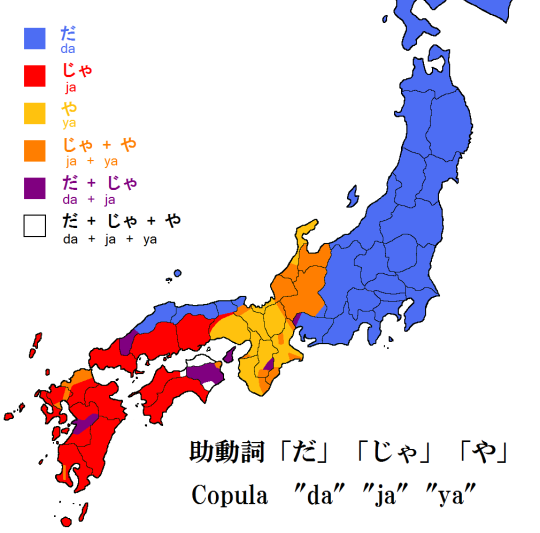
There are books on dialects, typically designed for native speakers, such as this dialect dictionary, or this Tosa ben guide available in Japan, but you’d need some very advanced Japanese to be able to access them, in which case I doubt you’d be following my blog.
Beyond regional dialects there are also many languages that are native to Japan that are not Japanese. If you’re interested in learning Ainu, one of the Ryukyuan languages, Japanese sign language, or another language from Japan that is not standard spoken Japanese then this Tofugu article may interest you. Many of these languages are endangered.
Thanks to these bloggers who helped contribute to this post:
@suzustarlight @tomatograffiti @grapefruitcake
Disclaimer: There are a massive number of regional dialects in Japan, I am neither Japanese, nor an expert, so inevitably I will miss some off this list. If you want to share information about a dialect from a part of Japan you’ve visited or lived in please reblog and add some information or resources, so that we can get this post to a point where it’s as comprehensive as possible. Many thanks!
10K notes
·
View notes
Text
The online Japanese course that no one talks about
Okay so I’m not a langblr and I never plan to be. However. What I do know from following a ton of them is that no one talks about Minato.
Now you may be thinking, ‘What’s Minato?’. It’s a website that was recommended to me by a Japanese Studies university professor for learning Japanse at home.
It’s literally the best resource out there and it’s free (funded by the Japanese government). You can choose between self-study and tutor support-led courses.
There are courses in Hiragana, Katakana, and the general language (from levels A1 to A2), and you can download a certificate and study record after completion of a course.
Here’s the link. Or if you want to type it: https://minato-jf.jp
Go. Learn some actual Japanese.
24K notes
·
View notes
Text
Halloween Vocabulary in Japanese

ハロウィン - Halloween
諸聖人の日 [しょせいじんのひ] - All Saints’ Day
トリック・オア・トリート - Trick or treat!
わっ! - Boo!
祭 [まつり] - feast, party, celebration
仮面舞踏会 [かめんぶとうかい] - masquerade ball
秋 [あき] - autumn
十月 [じゅうがつ] - October
お菓子 [おかし] - candy, sweet
林檎 [りんご] - apple
南瓜 [かぼちゃ] - pumpkin
提灯 [ちょうちん] - lantern
ジャック・オー・ランタン - Jack O’Lantern
蝋燭 [ろうそく] - candle
焚き火 [たきび] - bonfire
迷信 [めいしん] - superstition
占い [うらない] - divination
悪戯 [いたずら] - prank
黒 [くろ] - black
オレンジ色 [ オレンジいろ] - orange
猫 [ねこ] - cat
蝙蝠 [こうもり] - bat
蜘蛛 [くも] - spider
蜘蛛の巣 [くものす] - spiderweb
お化け [おばけ] - ghost
幽霊 [ゆうれい] - ghost
魔女 [まじょ] - witch
魔法使い [まほうつかい] - wizard
吸血鬼 [きゅうけつき] - vampire
霊 [れい] - spirit
ミイラ - mummy
ゾンビ - zombie
悪魔 [あくま] - devil
鬼 [おに] - demon
狼男 [おおかみおとこ] - werewolf
怪物 [かいぶつ] - monster
仮装 [かそう] - costume
化粧 [けしょう] - makeup
フェイス・ペイント - face paint
仮面 [かめん] - mask
鬘 [かつら] - wig
骨 [ほね] - bone
骸骨 [がいこつ] - skeleton
頭蓋骨 [ずがいこつ] - skull
血 [ち] - blood
死体 [したい] - corpse
お化け屋敷 [おばけやしき] - haunted house
墓地 [ぼち] - graveyard, cemetery
お墓 [おはか] - grave, tomb
棺 [かん] - coffin, casket
怪談 [かいだん] - ghost story
呪い [のろい] - curse
悪夢 [あくむ] - nightmare
夜 [よる] - night
夜中 [よなか] - midnight
月 [つき] - moon
影 [かげ] - shadow
遠吠え [とおぼえ] - howl
暗い [くらい] - dark
嵐 [あらし] - storm
叫び [さけび] - shout, scream, outcry
悲鳴 [ひめい] - shriek, scream
ホラー - horror
ショック - shock
恐怖 [きょうふ] - fear
怖い [こわい] - scary
恐ろしい [おそろしい] - terrible, horrible, dreadful, terrifying, frightening, awful
不気味 [ぶきみ] - weird, omnious, eerie, uncanny, ghastly
気持ち悪い [きもちわるい] - revolting, gross, disgusting, unpleasant, bad feeling
超自然的 [ちょうしぜんてき] - supernatural
神秘的 [しんぴてき] - mysterious, mystical
1K notes
·
View notes
Text
Hey did you know I keep a google drive folder with linguistics and language books that I try to update regularly
218K notes
·
View notes
Text
The 訳 (わけ) Masterpost
The 訳 (わけ) Masterpost
The word 訳 (わけ) variously translates to “meaning, reason, cause, conclusion derived from reasoning, judgment based on context.” (Some of these definitions could be considered the opposite of each other, which is what marks the complexity of this word and the grammar patterns that derive from it.)
Grammar Patterns that Employ 訳 (わけ):
1.) ~訳だ - “reason” or “for that reason~, as you’d expect~, that’s why~, etc.”
2.) ~という訳だ - “for that reason~, as you’d expect~, that’s why~, etc.”
3.) ~訳ではない - “it’s not like~”
4.) ~訳がない - “there’s no way that~, it can’t be that~”
5.) ~訳には行かない - “must~, must not~, cannot afford to~, impossible~”
#01. Two Meanings of 訳 (わけ) when used in simple, positive construction of ~訳だ (“reason” or “for that reason~, as you’d expect~, that’s why~, etc.”):
a.) Expressing a Reason
When used in its purest form, as a standalone word, 訳 (わけ) is often comparable to the most commonly used word for “reason,” 理由 (りゆう) and is even interchangeable with it in many cases.
Example(s):
(理由/わけ)もなく
(Riyuu/wake) mo naku
“without reason”
わけを話す
Wake o hanasu
“to state one’s reason, to tell one’s story”
どういうわけか
Douiu wake ka
“For what reason?”
というわけで
Toiu wake de
“for this reason, because of this (reason), with this (reason)”
*Not only is this a slight variation of one of the というわけだ grammar pattern covered, it is also a very common sentence-opening phrase, so much so that at times it is even used without any intent of its meaning/function of referring to the “reasoning” that was just established. For example an utterance of というわけで can translate to “anyway…, in any case…, so with that all said and done” in which the speaker is attempting to change the subject as opposed to refer to the last thing said as the reasoning for something. This can be commonly heard on television programs such as talk shows where the host has move things along into the next segment.
b.) Expressing a Conclusion/Result (which is quite the opposite to a reason)
However, when we interpret 訳 (わけ) for its other definitions of “result, conclusion derived from reasoning, judgment based on context” instead, it can be used as such to express not so much the reason behind something but rather the result/conclusion of something else that is acting as the reason/context. (This is its much more common usage and will also be the definition we will want to interpret for the numerous more advanced grammar patterns later on.)
Common intentions behind usage of this grammar pattern are making a logical conclusion based on some established information, expressing an understanding or acknowledgement of the established information by concluding something from it, and restating the information established but from a different angle (the word つまり will often by seen alongside this usage). For this reason, this version now variously translates to “for that reason~, so as you would expect~, no wonder~, that’s why~, this means~, as a result~, based on this~, essentially~, basically~. naturally~” In short, context is very important.
Construction:
Plain-Form VERB + 訳だ
い-ADJECTIVE + 訳だ
な-ADJECTIVE + (な/だった) + 訳だ
NOUN + (な/だった) + 訳だ
*In line with 訳 (わけ) expressing a conclusion based upon contextual details, the following examples provided will each either include two sentences or a sentence with two clauses (in which the first will provide and context, or reason, for the conclusion made in the second).
Example(s):
雨が降っていた。道がぬれているわけだ。
Ame ga futte ita. Michi ga nurete iru wake da.
”It’s been raining. That’s why the road is wet.”
*Making a logical conclusion based on some established information
彼はまだ14歳なのに、大学レベルの授業を取っている。
Kare wa mada 14 sai na no ni, daigaku level no jyugyou o totte iru.
He’s taking university level courses even though he’s only 14 years old.
つまり、天才という訳か。
So basically, he’s a genius.
*Expressing an understanding or acknowledgement of the established information by concluding something from it
彼女は5年間日本に住んでいました。
Kanojo wa 5 nenkan nihon ni sunde imashita.
She lived in Japan for five years before this.
あ、そうですか?つまり、日本語がとても上手なわけですね。
”Oh, is that so? So naturally, she must be really good at speaking Japanese.”
*Restating the information established but from a different angle
#02. ~という訳だ as “for that reason~, as you’d expect~, that’s why~, etc.”
Construction:
Plain-Form VERB + という訳だ
い-ADJECTIVE + という訳だ
な-ADJECTIVE + という訳だ
NOUN + という訳だ
The grammar pattern ~という訳だ actually frequently interchangeable with ~訳だ and only really differs from it in that it does not have two different uses. ~という訳だ emphasizes the second usage of ~訳だ (“for that reason~, so as you would expect~, no wonder~, that’s why~, this means~, as a result~, based on this~, essentially~, basically~. naturally~”) and is thus useful is knowing when 訳 is intended to mean “reason” or “result/conclusion.”
Example(s):
学園都市はなんでも近いから、運転免許がなくても生活できるというわけだ。
Gakuentoshi wa nandemo chikai kara, untenmenkyo ga nakutemo seikatsu dekiru touiu wake da.
“In college towns everything is nearby, so (it means/it’s such) that you can manage daily life even if you don’t have a driver’s license.”
Example of Differentiation:
そうか。誰も返事しないわけだ。
Sou ka. Daremo henji shinai wake da.
”I see. That’s the reason why no one will answer.”
*This is literally stating that what was said in the sentence before is the reason no one will answer.
そうか。誰も返事しないというわけだ。
Sou ka Daremo henji shinai toiu wake da.
”I see. This means that no one is going to answer.”
*On the other hand, this is making a statement about the current situation/result in which no one answer.
#03. ~訳ではない as “it’s not like~”
As might be predicted from the grammar (since it is simply the negative form of 訳だ), 訳ではない literally translates to “is not the reason for~.” However, the more natural meaning of the expression is something along the lines of “it’s not like~.” Here, we are again employing 訳’s variant definition of “conclusion based upon something said, something heard, or other such contextual clues,” or more simply, “result,” as opposed to “reason.” By doing so, our literal translation of the grammar pattern, which is now “it’s not the result~,” actually becomes more fitting to its actual meaning. Other phrasings that this grammar pattern could translate to include “it’s not as though~,” “it’s not the case that~,” “it doesn’t have much to do with~,” “it doesn’t mean that~,” “it’s not the case that~,” “not necessarily~,” “not altogether~,” “not particularly~,” etc.
In short, 訳ではない is used when we want to deny the “result” partially but not completely. The word choice in most of the translations above denote this nuance of partial denial.
Construction:
Plain-Form VERB + (という) + 訳ではない
い-ADJECTIVE + (という) + 訳ではない
な-ADJECTIVE + (な/だという) + 訳ではない
*Parenthesis is not optional in this な-ADJECTIVE case, either method needs to be used.
NOUN + (という) + 訳ではない
Example(s):
難しいわけじゃない
Muzukashii wake jyanai
“it’s not that hard”
完璧なわけではない
Kanpeki na wake dewanai
“it’s not like it’s perfect”
不可能だというわけではない
Fukanou da toiu wake dewanai
“it’s not necessarily impossible”
天才というわけじゃない
Tensai toiu wake jyanai
“it’s not like he’s a genius/he’s not necessarily a genius”
何でも知っているわけじゃない
Nandemo shitte iru wake jyanai
“It’s not like I know everything”
いつも部屋でゲームするわけではない
Itsumo heya de game suru wake dewanai
“It’s not like I’m always in my room just playing games”
誰でもプロになれるわけじゃないよ
Daredemo pro ni nareru wake jyanaiyo
“not everyone has what it takes to become a pro”
どんな勝負もみんな勝てるわけではない
Donna shoubu mo minna kateru wake dewanai
“you can’t win them all”
私はいつも元気だというわけではない
Watashi wa itsumo genki toiu wake dewanai
“It’s not like I’m always full of spirit.”
それは決まったわけではない
Sore wa kimatta wake dewanai
“That’s not necessarily decided upon.”
勘違いしないでよね、べつにあんたの事が好きなわけじゃないんだから
Kanchigai shinaide yo ne. Betsu ni anta no koto ga suki na wake jyanai da kara
“Don’t get me wrong! It’s not like I like you or anything!”
*In this signature tsundere line frequent in anime and dramas, note how the speaker is only partially denying that they have feelings for the addressee in line with the tsundere personality but is not completely denying it.
彼女の友達になれなかったが友達作りができないわけではない。
Kanojo no tomodachi ni narenakatta ga tomodachi tsukuri ga dekinai wake dewanai
“Just because you weren’t able to become friends with that girl doesn’t mean that you won’t be able to make any friends at all.”
#04. ~訳がない as “there’s no way that~, it can’t be that~“
The grammar 訳がない is often confused with 訳ではない, and that’s understandably so; both grammar patterns use the word 訳, use the negative form of the word ある, and use subject/topic marking particles が and は (which themselves are even more often confused with each other).
*This grammar pattern can actually be used as 訳はない as well, albeit it is less common than 訳がない. Much more often, in casual speech, the usage of particles が or は is dropped completely.
*The phrase わけない (sometimes even used as わけもない) is also used to express that something is very easy or simple. (Ex. わけもないことであった - “it was a simple act to pull off”) It is rather simple itself however to know when this version is being used because it grammatically acts in the same way as an adjective word.
Despite this similarity in the construction, these two grammar patterns have completely opposite meanings in a way, in that 訳ではない expresses a softened and partial negation of something while 訳がない (“it’s not like~”) expresses an emphasized and outright negation of something (“there’s no way~”). 訳がない’s meaning should come as more intuitive from the grammar of it’s construction. As the word 訳 means “reason” and がない (the Negative-Form of がある) means “to not be, to not exist, to not have,” this construction literally translates to “there is not reason that~,” which can then naturally transition into “there’s no way that~, it’s impossible that~, it can’t be that~.”
Construction:
Plain-Form VERB + (という) + 訳がない
*Most commonly exhibited in present tense
い-ADJECTIVE + 訳がない
な-ADJECTIVE + な + 訳がない
NOUN + (の/である) + 訳がない
Example(s):
僕の妹がこんなに可愛いわけがない
Boku no imouto ga konnani kawaii wake ga nai
“there’s no way my little sister can be this cute/my little sister can’t be this cute”
ぼくが嘘をつくわけないだろう?
Boku ga uso o tsuku wake nai darou?
“There’s no way that I would be lying, is there?!”
そんなわけがない
sonna wake ga nai
“There’s no way that’s true/That can’t be true!/That’s impossible!”
いるわけない
Iru wakenai
“There’s no way I would want that”
この大切な記憶を忘れるわけがない。
Kono taisetsu na kioku o wasureru wake ga nai
“There’s no way I’ll forget this precious memory.”
彼女が私を気に入るわけがない。
Kanojo ga watashi o ki ni iru wake ga nai
“There’s no way she’d be interested in me.”
この広いアパートは安いわけがない
Kono hiroi aparto wa yasui wake ga nai
“This spacious apartment can’t be cheap”
彼はいつも遅刻する、真面目な学生であるわけがない
Kare wa itsumo chikoku suru, majime na gakusei de aru wake ga nai
“That guy is always showing up late, there’s no way he’s a serious student”
その方法はたくさんの欠点がある。効果的なわけがない。
Sono houhou wa takusan no ketten ga aru. Koukateki na wake ga nai
“That approach is full of drawbacks. There’s no way it’ll be effective.”
#05. ~訳には行かない as “must (not)~, it is not okay to~, have no choice but to~, can’t afford to~, impossible to~ (although one may want to)”
The grammar ~訳にはいかない has the same meaning as the basic grammar pattern ~てはいけない, which most commonly translates to “must not do~.” It is, however, much less common due to it being more formal. It also expresses a stronger emphasis.
*Worth noting is that ~訳にはいかない exhibits a unique case of いかない as opposed to いけない.
While ~てはいけない requires the て-Form of a VERB word or the “て-Form” of a Negative- ない-Form VERB word, ~訳にはいかない instead either requires the Dictionary-Form of a VERB word or the Negative-ない-Form to mean “must not do VERB” and “must do VERB” respectively. (The positive usage of a verb results in a negative statement and vice versa due to the negative nature of the phrases いけない and いかない.)
Construction:
Dictionary-Form VERB + 訳には行かない = “must not VERB”
Negative-ない-Form + 訳には行かない = “must VERB” (must not not VERB)
*The polite version is 訳にはいきません
Example(s):
妹は一人で家にいますから真っ直ぐ帰宅しないわけには行かない。
Imouto wa hitori de uchi ni imasu kara massugu kitaku shinai wake niwa ikanai.
(My sister is at home alone right now so I must return straight home.)
この贈り物を受け取るわけにはいきません。
Kono okurimono o uketoru wake ni wa ikimasen
It’s not possible for me to accept this gift.
彼はこのチームのエースの。辞めさせるわけには行かないよ。
Kare wa kono team no ace no. Yamesaseru wake niwa ikanai yo.
He is the ace of this team. We can’t afford to let him quit.
僕は指名運転者だから酔うわけにはいかない
Boku wa shimeiuntensha da kara you wake ni wa ikanai
I’m the designated driver tonight so I can’t afford to get intoxicated.
一つの規準ですべてを律するわけには いかない。
Hitotsu no kijun de subete o rissuru wake ni wa ikanai
You mustn’t judge everything single thing by one standard.
そうやすやすと引き下がるわけにはいきませんよ。
Sou yasuyasu to hikisagaru wake ni wa ikimasenyo
I cannot afford to back down so easily.
Learning Japanese is a YouTube video series with the sole purpose of providing Japanese lessons online for free for anyone at any level! Find 300+ videos of various topics including grammar, vocabulary, kanji, culture, anime, and more with the link below!
https://www.youtube.com/user/learnjapanesebod
Join fellow learners of Japanese on our Discord server community!
You can follow the series on Facebook | Twitter for updates as well!
Support Learning Japanese on Patreon!
Please consider becoming a patron to support the continuation of this video series and the development of our curriculum!
https://www.patreon.com/learningjapanese
This video series is presented by becauseofdreams
http://becauseofdreams.com/
568 notes
·
View notes
Text
If there’s one thing I’ve learned when reading manga, it’s that if there’s an entire chunk of what looks like easy words and particles but it just doesn’t make sense, look up the whole phrase. It’s probably got its own entry in the dictionary.
This post prompted by コレといって, which you might parse as ‘kore to itte’/”Say this”, but when you look up the phrase, the given meaning is “not worth mentioning (with neg. verb); nothing special”
188 notes
·
View notes
Text

Six more common radicals to go with the first round of common radicals! If you see these shapes in a kanji, they can help you guess the meaning:
日 (usually on the left of the kanji but can go anywhere)= sun, day, time of day, time
月 (usually on the left, sometimes the bottom)= either “moon” or an abbreviation for 肉 “meat”(organs, body parts, etc.)
糸 (left or sometimes bottom)= thread, string, rope, tie together
土 (usually left or bottom)= dirt, earth, land
⻌ (bottom left)= going, path, road, movement
艹 (top)= small plants (Not trees. Trees use the radical 木)
Examples under the cut for anyone who wants to practice guessing kanji meanings based on the radicals. I tried to mix up the font styles a bit because some radicals (looking at you, ⻌) can look pretty different in different fonts.
Afficher davantage
135 notes
·
View notes
Text
Grammar Lesson: の, the explanatory particle
Are you a student? - 学生ですか?
You’re a student? - 学生ですか?
Here we have a problem with 日本語 as a language, we want to ask a question that:
Shows our surprise that they’re a student
Subtly asks for more info on them being a student
But there isn’t really a way to structure a sentence that conveys this.
For this, we use the の particle.
学生 -がくせい- Student
あの - That (over there)
男の子 -おとこのこ- Boy
人気 -にんき- Popular
I’m going to remove everything except the 学生 to keep it in the impolite form, as this is simpler than polite.
学生? - Are you a student?
学生なの?-You’re a student?
Remember the な is added because 学生 is a noun, and in generally you add な before a particle if you’re talking about a noun or na-adjective.
Here’s an example using an i-adjective, you don’t add な.
かわいいの?- You’re cute? (笑)
You can actually use の as a way of explaining yourself, or to answer a question.
If someone asks “That boy is popular?” You can say:
あの男の子人気なの? - (That boy is popular?)
かわいいの。 - (It is that he’s cute.)
For the polite form, you should replace の with ん.
学生んですか? - You’re a student?
If you see any errors please DM me :)
Try practicing it in the replies^^
345 notes
·
View notes
Text
Ways to reject an invitation in Japanese
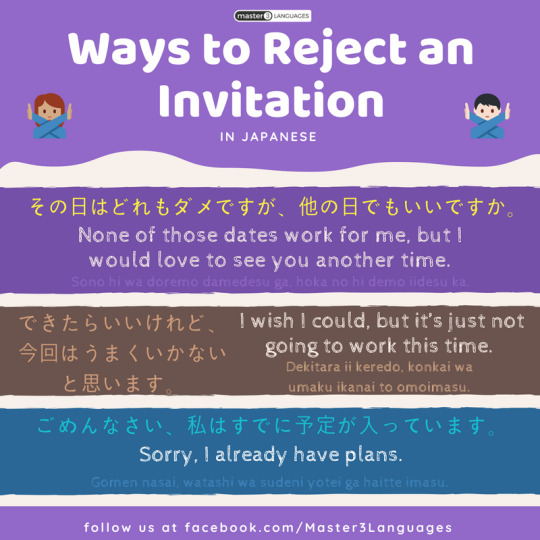
None of those dates work for me, but I would love to see you another time. - その日はどれもダメですが、他の日でもいいですか。(Sono hi wa doremo damedesu ga, hoka no hi demo iidesu ka.)
I wish I could, but it’s just not going to work this time. - できたらいいけれど、今回はうまくいかないと思います。(Dekitara ii keredo, konkai wa umaku ikanai to omoimasu.)
Sorry, I already have plans. - ごめんなさい、私はすでに予定が入っています。 (Gomen nasai, watashi wa sudeni yotei ga haitte imasu.)
■Learn how to read Japanese alphabet so easily: http://ow.ly/Xs3b30dKSrR
—
Follow Master3Languages for more updates :)
■ Facebook ■ Twitter ■ Instagram ■ Tumblr ■ Pinterest ■ Google+ ■
—
174 notes
·
View notes
Text

bujo highlight // January
— i used to spend too much time stressing about layouts, but i think i’ve found the best set up for my usual monthly spreads. functional, but still cute. what do you think?
🎧 City Girl - Gossamer Dress
📷 heyrosiebee
7K notes
·
View notes
Note
What is pitch accent? Like anything I see is basically saying this is high pit he'd and then it gets low and I don't get it. Like, it sounds weird whenever I attempt to pronounce it that way bc it sounds so unnatural. Do you have an advice/tips on this?
Pitch accent helps Japanese people distinguish words (even though chopsticks, bridge, and edge are all はし, their pitch allows Japanese people to distinguish between them outside of context).
It works similarly to the way English speakers have stresses that allow us to differentiate words – white house and White House are not said the same in a sentence such as “The White House is a white house.” The difference is subtle, but to a native speaker it makes or breaks how natural a sentence sounds.
So let’s continue with the はし example.
はし(端)edge
はし(橋)bridge
はし(箸)chopsticks
In this example, 端 carries no stress and can thus be described as accent-less. However, 橋 will have a slight uptake on the end when you say し, and in contrast 箸 will start higher and slip down when you say し.
This is also the case with sushi. American English pronounces sushi with the stress on the “su,” like sushi. It’s kind of a hard punch in the beginning and then we fade. However, in Japanese, the pitch is on the “shi” portion, so it’s actually more like すし, and it’s not a stress but a pitch.
The difference is subtle, and it’s not a tone in your voice. There is a reason that Japanese often sounds a bit like a wave, or “lyrical,” and it’s because their language is constantly moving up and down in pitch while they speak. Your voice doesn’t get louder, nor does your voice get “higher” or “lower,” but instead it simply pitches slightly upward or slightly downward or not at all.
My #1 tip to master this is to listen to Japanese spoken naturally and try to mimic it. When you’re having a conversation with someone in real time, you’re not going to be thinking “Am I pitching my words right?!” You should just be speaking, and if you’ve already practiced then you won’t have a problem.
I’d also recommend taking a look at Dogen’s YouTube series on Japanese pitch accent. He does a great job explaining how pitch accent works in Japanese and why it’s important to learn it! Japanese isn’t a flat language just because it doesn’t have stress or tone; it’s moving up and down too!
youtube
Please pay attention to Japanese pitch accent and don’t ignore it even though most textbooks don’t teach it or even talk about it! It’s hugely important to making your Japanese sound more natural, and it’ll help get rid of the accent you have on Japanese from your native tongue.
799 notes
·
View notes
Text
~まみれ
接辞(せつじ、affix)
全体によくないものが付いている。~がいっぱいだ。 covered with something (not nice). Lots of~。Lots of~。
汗まみれ (あせまみれ) covered in sweat
血まみれ (ちまみれ) covered in blood
泥まみれ (どろまみれ) covered in dirt
ほこりまみれ covered in dust
うそまみれ covered in lies
借金まみれ (しゃっきんまみれ) full of debt
357 notes
·
View notes
Text
60 Japanese words for household objects
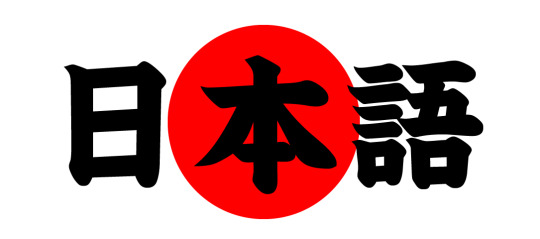
LIVING ROOM (リビング ribingu or 居間 ima)
1。 アーマチェア [āmuchea] ~ arm chair
2。電気スタンド [denki-sutando] ~ desk lamp; floor lamp
3。絵 [e] ~ painting
4。エアコン [eakon] ~ air conditioner
5。エンドテーブル [endo tēburu] ~ end table
6。電話 [denwa] ~ phone
7。ヒーター [hītā] ~ space heater
8。本棚 [hondana] ~ bookshelf; bookcase
9。コーヒーテールブ [kōhī tēburu] ~ coffee table
10。ソファー [sofā] ~ sofa
11。テレビ [terebi] ~ TV
BEDROOM (寝室 shinshitsu)
12。ベッド [beddo] ~ bed
13。ふとん [futon] ~ futon
14。カーテン [kāten] ~ curtains
15。枕 [makura] ~ pillow
16。目覚まし時計 [mezamashi-dokei] ~ alarm clock
17。毛布 [mōfu] ~ blanket
18。ナイトスタンド [naitosutando] ~ nightstand
19。シーツ [shītsu] ~ sheet
20。たんす [tansu] ~ chest of drawers
BATHROOM (バスルーム or 風呂場)
21。バスタオル [basu-taoru] ~ bath towel
22。ブラシ [burashi] ~ brush
23。ドライヤー [doraiyā] ~ hair dryer
24。歯ブラシ [ha-burashi] ~ toothbrush
25。鏡 [kagami] ~ mirror
26。シャワー [shawā] ~ shower
27。石鹸 [sekken] ~ soap
28。トイレットペーパー [toiretto pēpā] ~ toilet paper
DINING ROOM (ダイニング or 食堂)
29。フォーク [fōku] ~ fork
30。コップ [koppu] ~ glass; cup
31。ナイフ [naifu] ~ table knife
32。紙ナプキン [kami-napukin] ~ napkin
33。皿 [sara] ~ plate
34。スパチュラ [supachura] ~ spatula
35。スプーン [supūn] ~ spoon
36。テーブルクロス [tēburu-kurosu] ~ table cloth
37。器 [utsuwa] ~ bowl
KITCHEN (キツチン or 台所)
38。電子レンジ [denshi-renji] ~ mircrowave oven
39。冷凍庫 [reitōko] or フリーザー [furīzā] ~ freezer
40。椅子 [isu] ~ chair
41。コンロ [konro] ~ stove
42。キャビネット[kyabinetto] ~ cabinet
43。オーブン [ōbun] ~ oven
44。冷蔵庫 [reizōko] ~ refrigerator
45。食器洗い機 [shokki-arai-ki] ~ dishwasher
46。流し台 [nagashidai] or シンク [shinku] ~ sink
47。テーブル [tēburu] ~ table
48。ボール [bōru] ~ mixing bowl
49。フードプロセッサー [fūdo purosessā] ~ food processor
50。フライパン [furaipan] ~ frying pan
51。包丁 [hōchō] ~ chef’s knife
52。泡立て器 [awatateki] ~ whisk
53。計量カップ [keiryō kappu] ~ measuring cup
54。計量スプーン [keiryō supūn] ~ measuring spoon
55。コーヒーメーカー [kōhīmēkā] ~ coffee maker
56。まな板 [manaita] ~ cutting board
57。ミキサー [mikisā] ~ blender
58。鍋 [nabe] ~ pot
59。トースター [tōsutā] ~ toaster
60。ざる [zaru] ~ colander
7K notes
·
View notes
Text
Japanese Book Publishing Vocabulary

文芸(ぶんげい) - (art and) literature
読書(どくしょ) - reading (books)
ページを捲る(。めく。)- to turn (e.g. the page)
飛ばし読み+する(と。よ。)- skimming the pages, skipping words, reading quickly (literally “jump reading”)
読書家(どくしょか) - great reader
書店(しょてん) - bookshop, bookstore
書架(しょか) - bookshelf
執筆(しっぴつ) - writing(e.g. as a profession)
書籍(しょせき) - publication, book
出版(しゅっぱん) - publication
出版物(しゅっぱんぶつ) - publication(s)
出版する(しゅっぱん。) - to publish
購読(こうどく) - subscription (e.g. of a magazine)
編集(へんしゅう) - editing, editorial, compilation
営業(えいぎょう) - business, sales, trade
販売(はんばい) - sales, selling
企画(きかく) - project
*営業企画(えいぎょうきかく)- sales/ operation project
促進(そくしん) - promotion, marketing
児童書(じどうしょ) - children’s book(s)
雑誌(ざっし) - magazine
百科事典(ひゃっかじてん)- encyclopedia
随筆(ずいひつ) - essay, miscellaneous writings, literary jottings
索引(さくいん) - index, indices
目次(もくじ) - table of contents
解説(かいせつ) - explanation, commentary
粗筋(あらすじ) - outline, summary
台詞(せりふ)—>セリフ- one’s line, speech, dialogue in writing (normally written in katakana)
評論(ひょうろん) - criticism, critique
評判(ひょうばん) - fame
傑作(けっさく) - masterpiece
名作(めいさく) - famous piece of work/art
無名(むめい) - unsigned, anonymous; unpopular
Essential verbs:
読む(よ。)- to read
書く(か。)- to write
売る(う。)- to sell
買う(か。)- to buy
3K notes
·
View notes
Text
Transitivity in Japanese
A transitive verb is when a subject acts on an object, whereas an intransitive verb is when a subject acts on its own with no object
I run a company. (Transitive)
The company runs efficiently. (Intransitive)
They arrived late. (Intransitive)
She opened the book. (Transitive)
Since since intransitive verbs don’t act on an object they aren’t used with the direct object marker を
・However since Japanese often omits things, the lack of an を doesn’t inherently mean that the verb is intransitive. To check if a verb is being used as a transitive in English you can ask yourself ask ‘what?’ for Japanese the answer may not always be clear.
I run a company. → what do I run? → a company = transitive.
The company runs efficiently. → what does the company run? → no object = intransitive
私が遊んだ → What did I play? The sentence doesn’t say because the verb is intransitive and can’t take the an object.
私が買った → what did I buy? The sentence doesn’t specify even though the verb is transitive and can have an object.
・Although there are no hard and fast rules there are some ways to guess at if a Japanese verb is transitive or not as long as you know it’s dictionary form.
Verbs that have dictionary forms ending in an ある sound are mostly intransitive (if you change the ある to an える you will often get their transitive counterpart)
止まる → 止める
変わる → 変える
始まる → 始める
Dictionary forms that end in れる are often intransitive
流れる
壊れる
A common exception to this one is いれる
Dictionary forms that end in す are usually transitive
流す
壊す
Some verbs can be used as both
風が吹く (intransitive)
笛を吹く (transitive)
閉じる
運ぶ
触れる
増やす
巻く
持つ
結ぶ
・While intransitive verbs can’t use the object marker を sometimes the particle を marks an area that is being traversed and in such cases an intransitive verbs can appear with an を
空を飛ぶ ‘fly through the sky’
道を歩く ‘wall along the path’
In these cases を isn’t marking 空 or 道 as direct objects but rather it’s marking them as the area though which the verb is taking place.
483 notes
·
View notes
